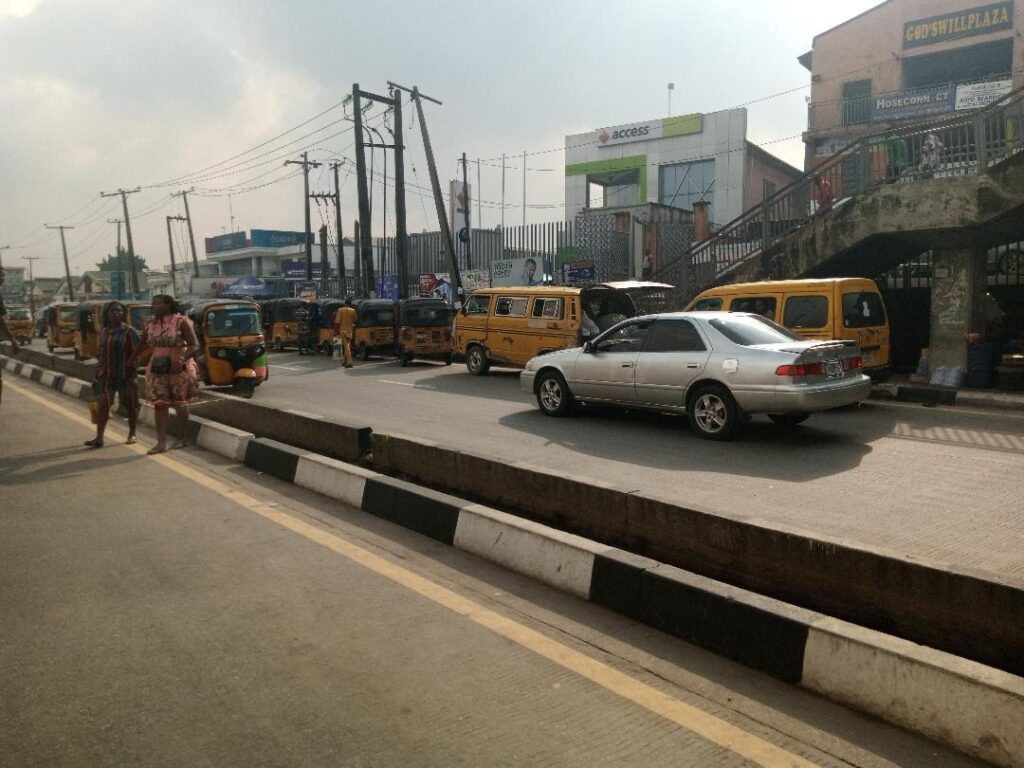Muda Yusuf is the Director General of the Lagos Chamber of Commerce and Industry (LCCI). In this interview with IKECHUKWU ONYEWUCHI, he suggested that government should provide enabling environment for all businesses to thrive, rather than concentrating on petroleum and paying subsidies.
What is the update on subsidy payment?
I THINK there has been a significant intervention at the level of the minister of finance and the presidency to ensure that the backlog of subsidy payments are cleared and we are beginning to see the result of that. This matter was discussed at the Federal Executive Council (FEC) meeting yesterday. We also listened to the minister of finance saying that the Debt Management Office (DMO) has been instructed to issue some sovereign debt paper to the banks to allow the fuel importers to begin to import.
The CBN governor also corroborated this fact; a lot of funding has been made available for them. I am sure that this will eventually tell on the treasury and the way the budget turns out because we are talking about clearing arrears. I think it is well over N300bn and the subsidy provision in the budget this year is just N200bn, and we are just in the first quarter.
Subsidy was said to have been reduced to N3, how come the bills are still mounting?
The bills have gone up again. It is a function of the oil price. At the time the pump price was reduced, the price of oil at the international market had come down to $50 per barrel. Exchange rate around that time was around N170. Soon after, oil prices went up to over $60 per barrel and exchange rate is now over N200. By the time the initial position was made about the N3 subsidy, the oil marketers still had access to RDAS, that is, Retail Dutch Auction window, where they buy foreign exchange.
But now, all of them have to go through the interbank. Exchange rate has gone to N200, and oil price has gone up, and that has affected the subsidy numbers.
Is there any relief anytime soon in terms of subsidy payment?
For as long as we have the kind of framework as currently obtains, to manage the downstream sector, there cannot be a relief. More of our scares resources will continue to be utilised for importation of petroleum product and subsidies. As we know, over time, one of the biggest platforms for corruption in this country is petroleum product importation and all the subsidy issues that come with it.
We have seen various probes and reports. From these probes, it very clear that there is a high content of corruption in the subsidy regime. And it is putting a lot of pressure on the resources of this country. It is part of the things that is exerting the biggest pressure even on the foreign exchange market because we are, perhaps, the only oil producing country that imports petroleum products to the degree that we do. All the refineries are not working.
All these are because of the framework for the management of the downstream sector. When I talk of framework, I mean that bureaucrats and politicians, instead of technocrats and entrepreneurs, are managing the sector. So, as long as we have that, efficiency will suffer, and along with it, we have a lot of corruption. This is because the civil service is not structured to deliver the kind of service that we expect from the downstream sector. The civil service is more structured — with due respect to civil servants — with emphasis on procedure and compliance with procedures, than results. In the private sector, the emphasis is on results.
But in the civil service, the greater emphasis is on procedure and how much has one complied with these procedures. Even if you don’t get the desired results at the end of the day, nobody will be held accountable. It is not in the interest of this country and this economy to allow that kind of framework to continue. And in fairness to the minister of finance, she said this at the time of the subsidy riots and protests. She said that it was better to do away with this thing so that the pressure on the finances of government will reduce. Even the ministry of petroleum also said that it is not in the interest of the country for government to continue to run refineries. But there are all sorts of forces at play and a lot of people are making cheap money from the present arrangement.
If one studies the subsidy figures, there was a time it was close to N1.5trn in a year. Even last year, subsidy figure at least as reflected in this year’s budget was N971bn, how do you explain that in a country where public schools are collapsing. Check out the public primary and secondary schools, you will feel sorry for this country and the common man.
When government talks about subsidy, it says it is in it for the common man, but here is a system where over a trillion is spent for subsidy and there is little to provide education for the children of this poor people. These days, to get quality education at the primary school level, one has to go to private schools. How many of these poor people can afford to take their children to these private schools? And the same thing applies to secondary school education. The best way to liberate the poor from poverty is to give them the opportunity to educate their children. Even if they don’t have money and have access to cheap education provided by the state, the following generation of section of the society will move up.
Here, our educational system is suffering from acute funding; our health system is suffering the same. One only needs to visit public hospitals and feel sorry for this country. People are dying everyday, not because the doctors don’t know what to do, but because the facilities are not there. Where they ask people to pay N5,000 for x-ray, these people, especially the poor, can’t even afford it. These are things government should engage itself with. It is not supposed to be involved with fuel importation, retailing or running refineries. Government should be fixing critical infrastructures.
In my opinion, it is better to subsidise electricity than fuel. Electricity has a better developmental impact than fuel; look at what the country is going through now because of the challenge of power supply. It has very considerable effect not just on welfare, but also on the economy. These are issues. Government should be fixing infrastructure and security and leave all these issues of petroleum to the private sector and ensure that there is very good regulatory framework.
Shouldn’t government consider a special exchange rate window for those who are strictly fuel importers?
The issue is that we have limited resources. We can’t be spending all our resources on fuel; we have other things to do in this country. We don’t have good roads; we don’t have a rail system or good power supply. Our security is not the best. We don’t have good schools and public hospitals. These are equally important issues. How do you justify a situation where you are spending almost 30 per cent of your total revenue on importation of petrol?
The thing is, if we were producing these things locally, why would we be talking about exchange rate, anyway? There would be crude oil and refineries to go with it. We should be exporting petroleum products, instead. I believe it is a governance issue. We shouldn’t be talking about concessionary exchange rates; rather, we should address the fundamental issues. We are an oil producing country and should create a framework that would make our refineries work, allow the private sector to drive the entire process and ensure that there is a very strong regulatory framework and that the consumers are not exploited.
Then how would the independent marketers survive this period; are they to be left to fend for themselves?
It is a free market and a business. Why are we not worried about private schools that are charging exorbitant rates? There would be crude oil and refineries to go with it. We should be exporting petroleum products instead. I believe it is a governance issue. We shouldn’t be talking about concessionary exchange, or private hospitals, is anybody worried about how they source their funds? It is a business; government should get out of it completely; let private sector people, who see it as an opportunity to do business source their funds, and their foreign exchange, if need be, and do the business. What the government needs to do is to create an enabling environment for everyone, not just for those who are in the business of petrol. They should create a funding mechanism for agriculture, education, petroleum and all businesses. We cannot just isolate the petroleum sector. If we have a good system where the government allows the private sector to run the show, people will set up refineries.
The oil companies in the upstream sector will come to the downstream sector to make investments because there is money to be made. Rather than just producing crude and exporting, we also will be refining and creating more jobs.
These issues are contained in the PIB; what is stalling the passage of the bill and how does it propose to tackle issues of fuel scarcity?
We have to ask the National Assembly to know what is stalling the passage of the bill. Maybe there are all sorts of forces moving in different directions on the bill. They have not reached a consensus, and that is stalling the passage, I believe. Some national interests are conflicting with narrow interests. The bill is important because it will create the space and environment for the system to be more transparently managed and private sector-driven. There are some provisions that give power to the minister and president in the bill. I followed the debate at the National Assembly and people spoke on these provisions and I expect that they must have been removed. The move would be good for policy clarity for the sector. Investing in the oil sector takes a lot of money and one needs to study the environment before making investments. The non-passage is stalling investments and a lot of investors are waiting in the wings to see a clearer policy so that they can make investments, which will, in turn, create a lot of jobs. It will also increase the capacity of the citizens.
What is the state of local refineries and what is the prospect for new ones?
Civil servants and politicians are managing the refineries and that is why they will not work. The system, not the human beings, will not allow it to work. They are tied to the NNPC, the minister and the presidency. If you have that kind of chain, you can’t get any good outcome. The situation is slightly different from the former NEPA, which has experienced very little difference after privatisation. Electricity is a more critical infrastructure than petroleum products, in terms of development, just like roads, health and education. These are very important and shouldn’t be left entirely to the private sector. Government has a role to play in providing critical infrastructure to ensure that consumers are protected, for the purpose of their welfare and the development of the country. Personally, I have a reservation for outright privatisation of electricity, because it is a critical infrastructure. But petroleum sector is a space that one can easily leave to the private sector.



